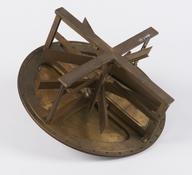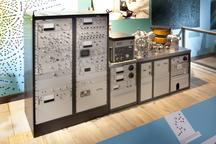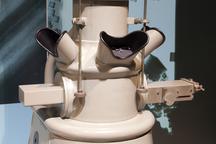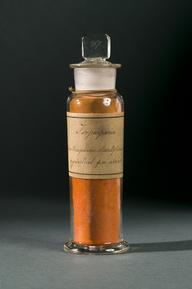

Replica of calorimeter used by James Joule
- Made:
- 1900-1969 in unknown place




Replica of calorimeter and paddlewheel used by James Joule in his first determination of the mechanical equivalent of heat in 1845. Original in Science Museum, London.
James Prescott Joule (1818-99) was the son of a wealthy Salford brewer. He was tutored by Manchester scientist John Dalton. In the 1840s Joule began investigating the most efficient way to power his brewery’s pumps and stirrers. He found that a recent invention, the electric motor, was no cheaper to run than a coal-powered steam engine. Joule’s experiments demonstrated the relationship between heat and mechanical work.
His next experiments used a paddlewheel and calorimeter like this to prove that heat and mechanical work are both forms of energy. Joule thought that the friction caused by stirring water with a paddle would create heat and raise the water’s temperature. His careful scientific experiments proved him right. He found that mechanical energy was turned into heat energy by the paddle wheel. Joule's theory of the 'Mechanical Equivalent of Heat' laid the basis for the first law of thermodynamics, which says that energy can neither be created nor destroyed but can be turned into different forms.
Details
- Category:
- Scientific Instruments & Research
- Object Number:
- Y1969.5.40
- Materials:
- copper (metal)
- Measurements:
-
overall: 200 mm 210 mm,
- type:
- calorimeter
- credit:
- Gift of University of Manchester Institute of Science & Technology




